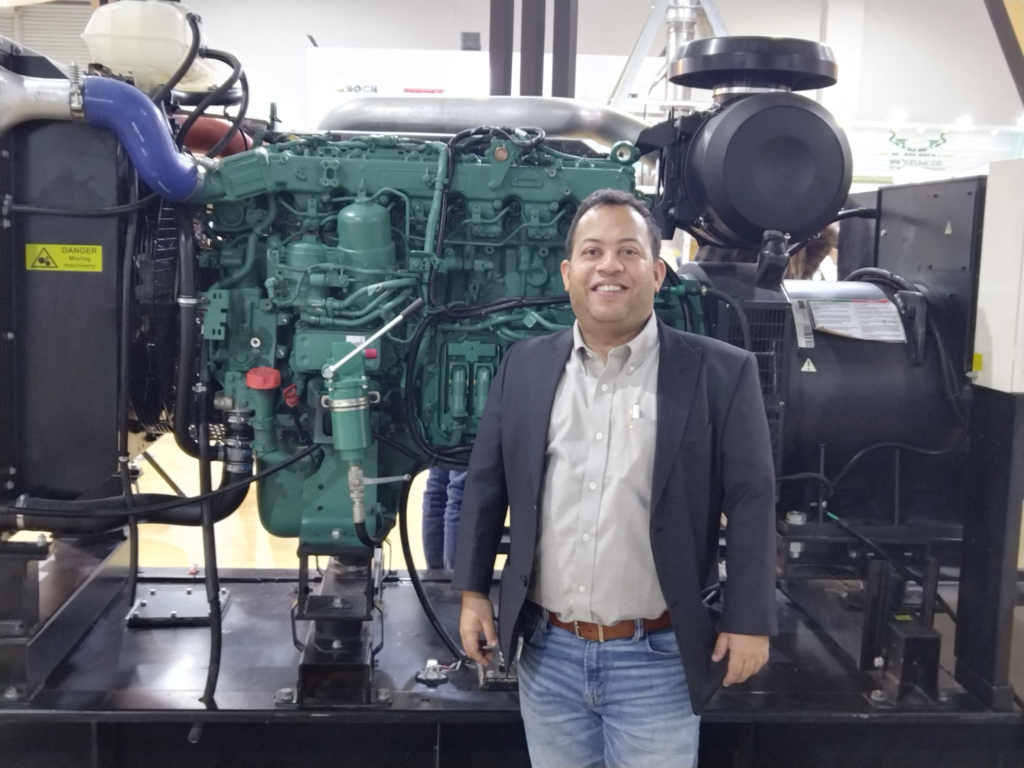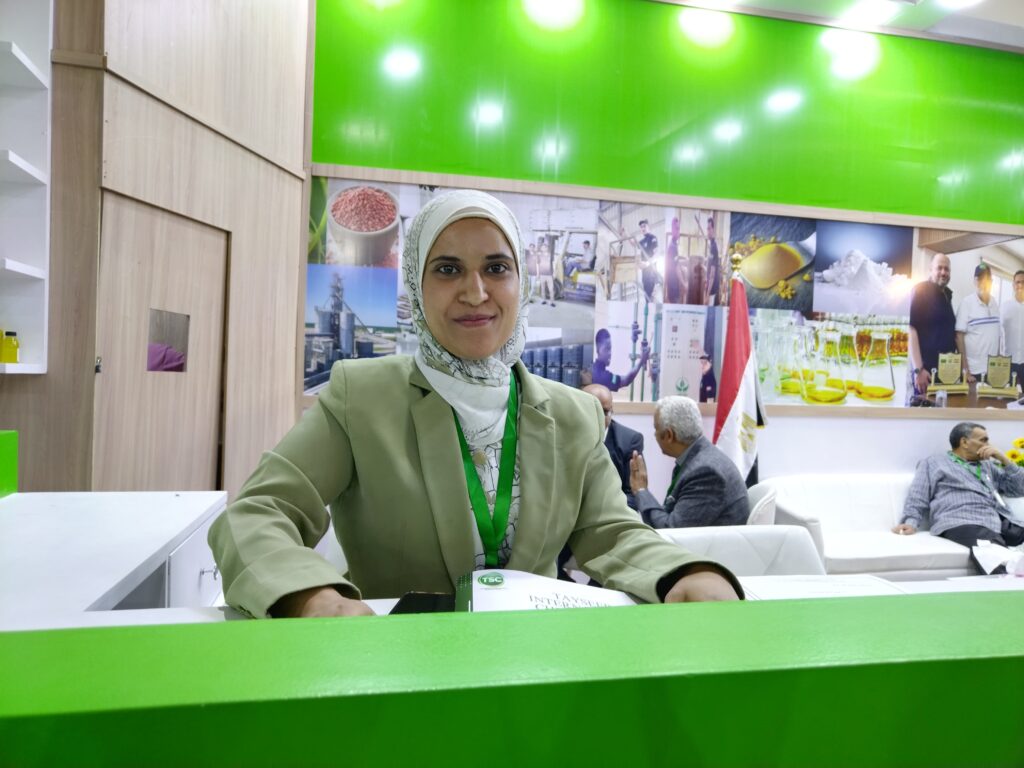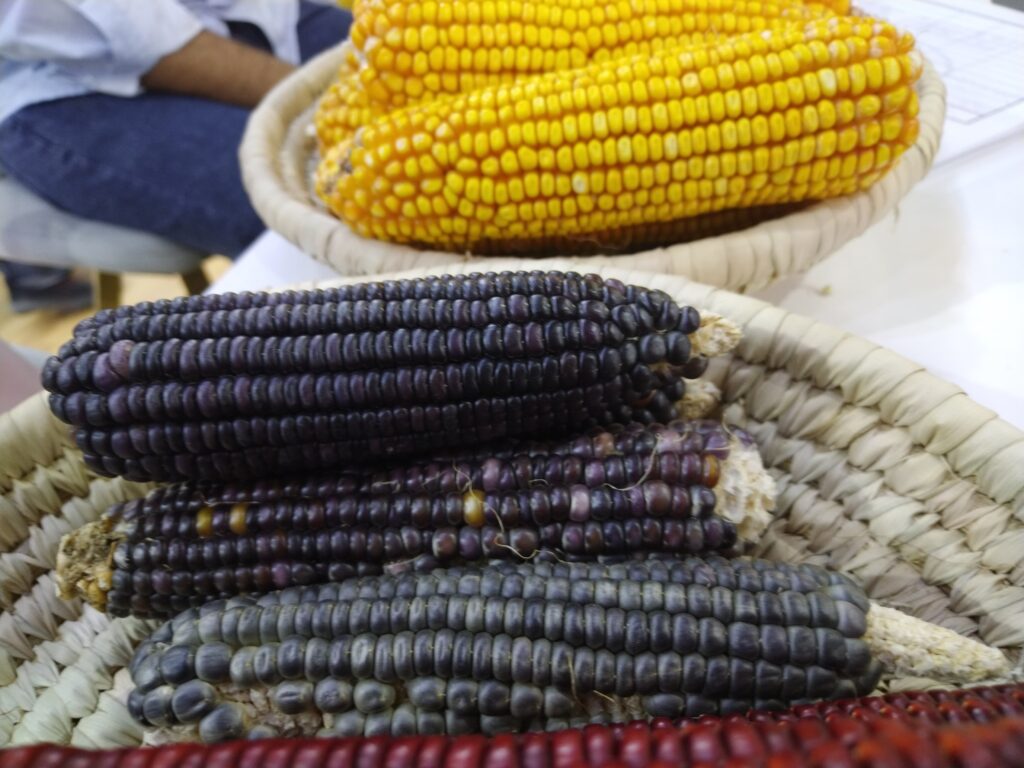Food & Climate
The 36th edition of the “Sahara International Agricultural Exhibition” concluded its activities today, Tuesday, September 17, 2024, which was launched in the Egyptian capital (Cairo) 3 days ago.
The exhibition connects specialists, investors, emerging markets and advanced technologies, as hundreds of local and foreign companies display their agricultural-related products.
Exhibitors presented new solutions in crop management, irrigation systems, agricultural techniques, and sustainable agriculture in Egypt and abroad.
The “Food & Climate” platform met with many company officials at the Sahara International Agriculture Exhibition today, where they revealed modern technologies and materials for agriculture, reducing emissions in agricultural activity, irrigation operations and reducing soil salinity.
For example, Sameh Gamal, sales engineer for the environmental machines sector at “Teckman”, a company specializing in importing agricultural equipment and vehicles such as tractors, said that his company imports such equipment from abroad, such as Britain, and is preparing to bring in equipment that runs on green energy such as hydrogen and electricity, instead of fossil fuels, but “we wait demand exist for it from farmers”, which contributes to reducing carbon emissions.
20% reduction in emissions
Praveen Sarmalkar, regional director in the Middle East for the Indian group “Bai Kane”, which produces modern irrigation equipment, explained to the “Food & Climate” platform, on the sidelines of the “Sahara International Agriculture Exhibition”, that Volvo machines use 20% less fuel, which reduces carbon emissions by the same amount.

The agricultural activity, and related activities such as animal production, contribute of global greenhouse gas emissions by 25% at least, and it is also one of the activities most vulnerable to the effects of climate change.
Farha Mohammed, a chemist at the Saudi-Egyptian TSC company, which produces chemicals that treat soil salinity, in addition to soil improvement fertilizers, explained the importance of products to treat soil salinity, which is one of the most significant damages resulting from climate change, in light of the global failure to reduce global warming and the continued rise in temperatures.

In the field of seeds, Techno Seeds Company presented developed varieties of corn, in which the protein content rises to 11%, compared to regular corn, in which the protein content is around 7%, and the company is developing another variety in which the protein content will rise to 14%.
All of these varieties, including sorghum, which is consumed in Egypt as animal feed, are characterized by their heat resistance, according to the one of director of the marketing department, Mohammed Al-Zawahiri.

Many countries around the world are seeking to develop new varieties of seeds that work to resist extreme weather conditions, and Egypt is one of the countries most vulnerable to drought in the world.
Green Finance for Agriculture
Green finance played a role in the Sahara International Agriculture Exhibition, as Contact Finance Company presented means of financing agricultural activities, or establishing solar power stations, at interest rates lower than those offered by commercial banks in the local market.
A number of seminars were held on the sidelines of the Sahara International Agriculture Exhibition, which discussed several issues related to agricultural production, sustainability and climate change.
The seminars focused on agricultural technology, modern agricultural practices, and the latest sustainable practices in the agricultural industry.
The Sahara International Agriculture Exhibition website explains the reason for focusing on agricultural technology, saying: “The agricultural sector is changing dramatically thanks to new technological developments and sustainable practices. With increasing challenges such as climate change and resource scarcity, agricultural technology has become an essential part of modernizing agriculture, improving operations and increasing productivity. The use of technologies such as the Internet of Things, artificial intelligence and automation helps farmers make smarter decisions, conserve resources, and ensure long-term sustainability.”
It added that with the global population increasing, demand for food rising, and pressures on agricultural systems becoming greater than ever, agricultural technology is contributing to significant progress in several areas such as:
First: Improving crop production by providing the right amount of water, nutrients, and plant care, based on data analytics.
Second: Reducing environmental impact by improving resource utilization.
Third: Using autonomous machines for arduous tasks and freeing farmers to focus on higher value-added activities.

